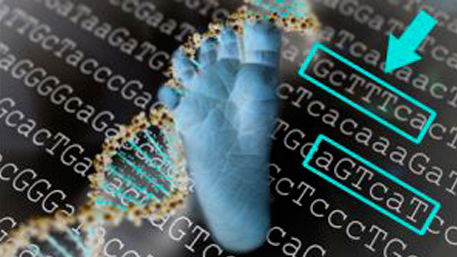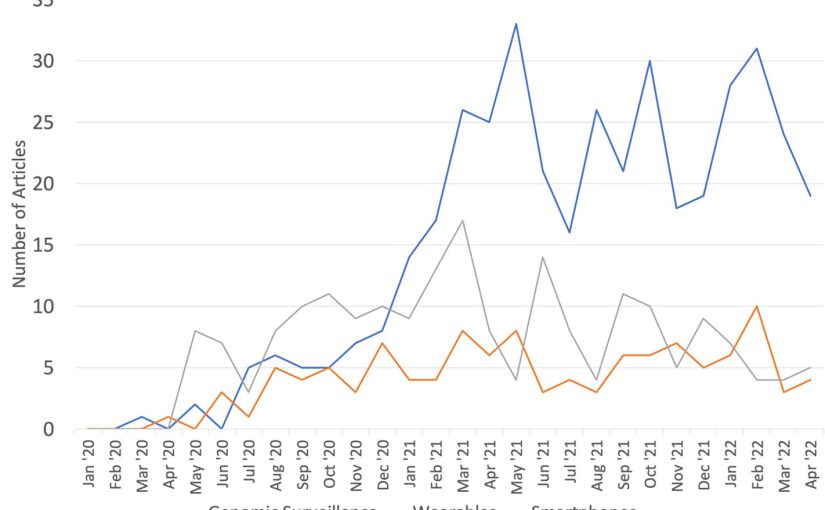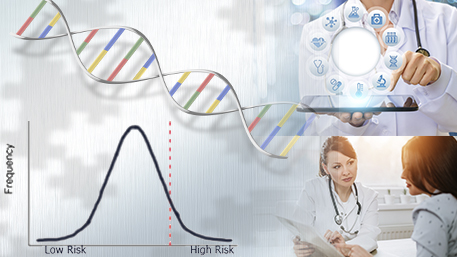Search Results
10 results for equity
Get up to Speed on the Latest Developments in the Field! Register for the ORISE Current Issues in Genomics and Precision Public Health Online Training Event, September 7–8, 2023.

Advances in genomics, data science, machine learning, and artificial intelligence are transforming practice. Next generation public health and medical workforces need to understand these developments and how they can be used to benefit population health. Recognizing this challenge, Oak Ridge Institute for Science and Education (ORISE) is partnering with the Office of Genomics and Precision
Posted on byData for Action in Public Health Genomics: Ensuring Equitable Implementation of Genomic Applications Across the Lifespan

In the more than 20 years since the completion of the Human Genome Project, basic and clinical research have delivered on the promise to develop genomic applications that can help prevent and treat many diseases across the lifespan. However, efforts to ensure equitable implementation of genomic applications have fallen short particularly among racial and ethnic
Posted on byAdvancing Genomic Medicine in Africa: Work in Progress

A 2021 report by the African Academy of Sciences (AAS), the Alliance for Accelerating Excellence in Science in Africa (AESA), and the African Union Development Agency (AUDA-NEPAD) presented a framework for the implementation of genomic medicine for public health in Africa. Globally, there is widespread recognition of the potential of genomic medicine (GM) to improve
Posted on byIncreasing Use and Impact of Family Health History in Medically Underserved Populations: Work in Progress

Despite years of public health efforts, family health history remains underutilized in clinical care, especially among people who are medically underserved. To address these issues, CDC’s Office of Genomics and Precision Public Health hosted a webinar on November 14, 2022, in conjunction with National Family Health History Day (Thanksgiving). The speakers called for better informed,
Posted on byPreventing Disease and Protecting Health Among Individuals at Increased Genetic Risk: A Lifespan Perspective and an Emerging Public Health Challenge

Since the completion of the Human Genome Project, major advances have occurred in the translation of human genome discoveries into clinical practice and disease prevention. As almost all human diseases are due to complex gene-environment interactions, the applications of human genomics should be pertinent to the prevention and control of many diseases, including rare and
Posted on byFrom Guthrie to Genomes: The Continued Evolution of Newborn Screening

Two recent articles by Bick et al. and Watson et al. discussed the future of newborn screening and identified considerations and needs for the evolution of the newborn screening system as it tries to meet the growing demands to screen for more rare diseases and incorporate genomic technologies. As newborn screening (NBS) moves past 60
Posted on by 1 CommentFulfilling the Promise of Epigenetics Requires More Studies in Diverse Populations

Two recent articles, one in Nature Genetics and another in Genome Medicine, report the lack of racial and ethnic diversity in epigenetic research. This needs to change in order to fulfill the promise of epigenetics as a tool for health equity science. Health equity is the state where everyone has a fair and just ability
Posted on byPrecision Health Innovations in the Pandemic Era

Two recent articles, one in Nature Medicine and another in Nature Biotechnology, highlight areas of health innovation that have been accelerated by the COVID-19 pandemic. This blog post focuses on two precision health applications of technology—(1) genomics and (2) wearable devices and smartphone apps—that are likely to have a lasting impact beyond the pandemic. Increased
Posted on byPolygenic Risk Scores in Clinical Practice? Still Making the Case

Two recent systematic reviews show the lack of data on clinical utility of polygenic risk scores and major challenges in implementation. The Promise of Polygenic Risk Scores in Population Health Many common diseases such as cancer, diabetes, and heart disease, result from the combination of genetic factors and physical and social environmental factors. Genome-wide association
Posted on byUsing Pharmacogenomics to Better Understand the Role of Selected Medications and Birth Defect Risk

Through a funding opportunity from CDC’s Office of Genomics and Precision Public Health in collaboration with the Office of Advanced Molecular Detection, CDC’s Birth Defects Monitoring and Research Branch in the National Center on Birth Defects and Developmental Disabilities will conduct a 2-year project to gather genome-wide genotyping data to look at relationships between pharmacogenomic
Posted on by

